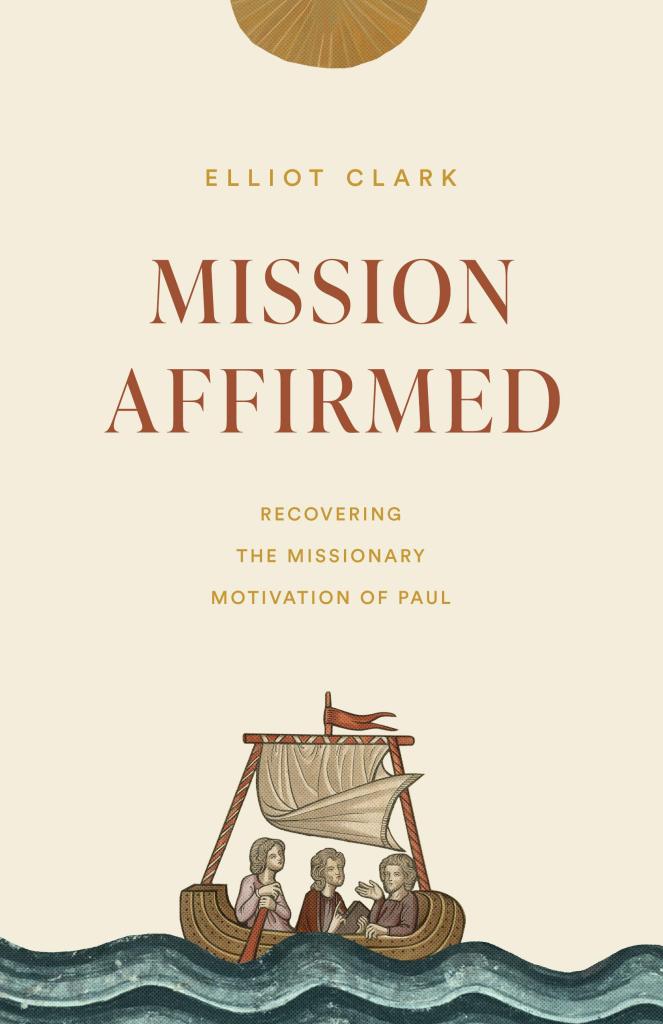I’ve read a lot of books about missions, but I don’t tend to like more general ones that seek to motivate people to become a missionary. This is because so many of them are the same in their basic ideas and images.
 Countless authors cast a big vision about all the unreached peoples of the world who need Jesus lest they experience eternal death. They glamorize sacrifice for the sake of Christ. Some appeal to Jesus’ return, claiming that missions is the way to hasten his second-coming. They all underscore God’s love for all nations. Reformed types like to expound on the glory of God. Do these themes sound familiar?
Countless authors cast a big vision about all the unreached peoples of the world who need Jesus lest they experience eternal death. They glamorize sacrifice for the sake of Christ. Some appeal to Jesus’ return, claiming that missions is the way to hasten his second-coming. They all underscore God’s love for all nations. Reformed types like to expound on the glory of God. Do these themes sound familiar?
To be clear, I’m not throwing all those books under the proverbial bus. But Elliot Clark reminds us of a fundamental motive that underlies all of Paul’s work yet routinely gets overlooked. Any idea what it is?
Did Paul Search for Approval?
In his recent book, Mission Affirmed: Recovering the Missionary Motivation of Paul, Clark opens by recalling Paul’s message to the Corinthians. In 2 Corinthians 2:12, Paul says, “A door was opened for me in the Lord.” Nevertheless, Paul passed up that opportunity for fruitful ministry. Why!? Paul was simply too concerned for Titus and the wellbeing of the Corinthian church to continue through that open door.
This observation raises questions for Clark and for us. What lies beneath Paul’s anxiety? Throughout the book, Clark elaborates on the answer to that question, and its implication. In a word, Paul wants God’s approval. Clark states,
But what I’ve found is that we rarely reflect at length on one of the explicit and often repeated goals of Paul: his desire for God’s affirmation. Subsequently, we’ve rarely considered how this overarching motivation for honor and recognition on the last day had a significant role to play in guiding Paul’s missionary approach. (26-27)
He unpacks this thesis much more fully throughout the book, including its implications. I’ll highlight a few applications in the coming posts.
Clark is abundantly clear about what he is not saying. He does not suggest that Paul thinks his salvation depends on how “successful” Paul is as a missionary. Instead, God’s pleasure and Paul’s reward are at stake.
Why does God’s commendation matter so much to Paul’s missionary strategy? Clark says,
For Paul, preaching to others without an eye to God’s approval would be like running without a sense of direction. (37)
It’s a significant claim to link mission motivation with mission strategy, but I think the point is self-evident. Just think of all the literature that emphasizes getting enough people saved such that Jesus would come back sooner. That emphasis will and does lead to far greater stress on rapidity, “church planting movements,” etc., and less concern for social ministries (e.g., relief work, freedom from slave trafficking, etc.).
Paul Prioritizes Quality over Quantity
Clark has several things in mind as he writes. I’ll mention one point that threads throughout the book. Put simply, God cares about the quality of our work. What might this point entail?
1. Numbers
First, Paul was not consumed with numbers, such as the number of churches planted and the number of people that he shared the gospel with daily.
2. Sustainability
Second, Paul was not consumed by speed; instead, his mind was more sensitive to the fact that God assessed the health and sustainability of Paul’s work. Clark rightly states,
If there’s one thing history should teach us, it’s that commitments to speed and blind self-confidence rarely combine to produce appreciable results. (23)
3. Longevity
Third, this priority for quality calls for longevity. The church needs a different type of missionary perspective. Clark writes,
Our consumeristic culture has given rise to throwaway culture. We value novelty and immediacy more than durability… In missions, we recruit missionaries with urgency, not toward longevity… While our missionary mantra of late has been “Work yourself out of a job,” one has to wonder if a more appropriate goal would be, “Build something that lasts. (21)
4. Strategy
Fourth, because Paul’s goal was to foster communities that bear witness to the kingdom of God, he does not accept any and every ministry strategy. Some approaches to ministry undermine the church’s long-term health. Clark states,
“One of the strangest axioms I’ve heard from missionaries over the yars is, “You can’t argue with results.” If something works, don’t question it. When a ministry or a methodology is bringing people to Jesus and bearing fruit, then it’s clearly good and from God. Consequently, growth and reproduction aren’t simply understood as the ultimate goal of missions; they’re now the standard by which ministries are evaluated and new strategies are developed. (126)
5. “Success”
Fifth, we must be mindful of how we define “success.” Clark explains,
From my years living in Asia to my current travels around the globe, what I find are missionaries and ministries with the unbiblical view that, when it comes to missions, any effort is commendable. Equally troubling, many assume that the all-important goal of reaching the lost validates our use of almost any means. (25)
I only scratch the surface in listing these five points. In upcoming posts, I dig a bit deeper to consider some practical implications of having Paul’s missionary motive.












